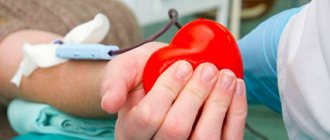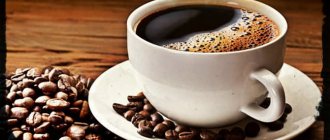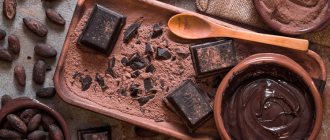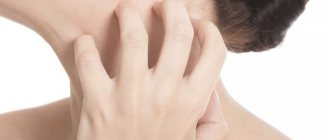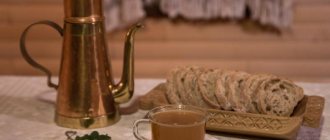The emergence of a strange tandem
The classic recipe for coffee with alcohol is called an Irish cocktail - there is an interesting legend associated with its creation. The mention of the drink dates back to the middle of the last century, and the authorship is attributed to bartender Joe Sheridan. The man worked at an airport near the Atlantic coast of Ireland, where flights from the United States regularly arrived. The following story is described in two versions.
- Read more: Irish coffee - recipe at home
According to the first source, the bartender came up with an original tandem to greet travelers. The drink is based on a traditional Irish recipe for tea with alcohol. Another legend says that the Americans' flight was delayed, and Joe helped them warm up with coffee and whiskey.
Among the passengers was a journalist from San Francisco, who, upon returning home, told a bartender he knew about the drink. The Irish recipe has gained popularity not only in America, but also on other continents, although since then it has changed significantly. Whipped cream is added to espresso, sugar and whiskey, and some bars are experimenting with different types of alcohol.
Interaction of caffeine with alcohol
The main target of both caffeine and alcohol is the brain. As already noted, caffeine stimulates the nervous system. Alcohol has a more complex effect on the nervous system. At the initial stage of intoxication, it excites the nervous system and then suppresses it.
The instructions for caffeine sodium benzoate indicate that the medicine should not be taken with alcohol . This is because this combination can lead to excessive stimulation of the nervous system. This can ultimately provoke the development of the following phenomena:
- Excessive agitation, anxiety;
- Hand tremors;
- Insomnia;
- Confusion;
- Increased pressure;
- Tachycardia and arrhythmia;
- Headache;
- Cramps.
Of course, the likelihood of developing such symptoms is high if a person has taken large doses of caffeine with alcohol. However, in any case, you should not experiment in this way.
The effect of the drink on the body
Coffee is a powerful natural stimulant that improves mood, improves concentration and helps fight fatigue. Alcohol suppresses the nervous system, so a cocktail of incompatible components with the opposite effect is harmful.
- This is interesting: The mechanism of action of caffeine on the human body
Alcohol lowers blood pressure and dilates blood vessels, while caffeine increases blood pressure while constricting blood vessels. The effect of the substances is not neutralized, but is layered on top of each other, which depletes the body:
- severe stress on the heart;
- the appearance of cardiomyopathy and arrhythmia;
- colossal costs of systems for tissue restoration at the cellular level.
The danger of combining coffee and alcohol is the formation of inadequate reactions. There is an opinion that an invigorating drink helps sober up, but this is not so. Espresso only creates the illusion of adequacy, but reactions remain inhibited.
If under the influence of alcohol a person can relax and fall asleep, then short-term “clarity of mind” allows you to get behind the wheel. The drinker is confident that nothing bad will happen, and this postulate becomes the cause of many accidents.
Coffee really invigorates, but the effect lasts no longer than 20 minutes. At this time, it is difficult for a person to adequately assess the degree of intoxication, consciousness is confused, dexterity is nothing more than another illusion.
Both drinks severely dehydrate the body. The “explosive” mixture deprives the internal systems of precious fluid in a matter of hours - hence the severe hangover. In order not to cause irreparable damage to the body, the ratio of alcohol and coffee should not exceed 20:100. However, the permitted proportions should not be abused.
Indications for use of caffeine
Every person knows how coffee drinks affect the body. Drinking a cup of coffee gives you vigor and energy. This effect of the drink is due to the caffeine included in its composition. The same caffeine is available in the form of tablets and injection solution. Doctors prescribe caffeine sodium benzoate to patients if there are certain indications.
So, caffeine has a stimulating effect on the central nervous system. It makes the brain work faster, resulting in increased performance. In addition, due to the stimulating effect, a person feels a surge of strength, fatigue and drowsiness are eliminated.
Caffeine also has a significant effect on the cardiovascular system. Thus, in people with hypotension, caffeine increases blood pressure. And the effect of the drug on the heart is due to an increase in heart rate.
note
The effect of caffeine on the human body largely depends on the type of nervous activity. Thus, a specific dose of caffeine in one person will cause stimulation of the nervous system. But for another person, the same dose will be excessive, which will lead to inhibition of the nervous system.
The main indications for the use of caffeine sodium benzoate are:
- Asthenic conditions;
- Arterial hypotension;
- Headache due to spasm of cerebral vessels;
- Excessive sleepiness;
- To improve mental and physical performance.
Coffee and alcohol - before or after
During a feast, toxicologists recommend choosing one thing - you should not mix alcoholic beverages and caffeine. Alcohol is quickly absorbed into the bloodstream, and espresso will aggravate the body's condition.
Natural grains do contain substances that accelerate the processing of alcohol. But for a beneficial effect, coffee should be drunk 20-30 minutes before the first toast. It is advisable to give preference to a recipe with the addition of milk - proteins will serve as reliable protection for the gastric mucosa from the aggressive attack of alcohol.
- Don't miss: How to drink coffee healthier, with or without milk
Under no circumstances should you drink coffee after vodka or alternate both options. The load on the liver and excretory system will be unbearable even for a strong and absolutely healthy body. There is a feeling of anxiety, nervousness, heart rate increases, and the risk of developing hypertension increases.
To prevent intoxication, it is recommended to treat yourself to a portion of an invigorating drink with milk or a slice of low-fat cheese before the feast.
Consequences of consuming caffeine and alcohol together
There is an opinion that in order to sober up from drinking alcohol, you need to drink coffee. In fact, caffeine somewhat weakens the hypnotic effect of alcohol, and the person becomes more alert. But caffeine does not neutralize alcohol in the blood, as it might seem. And in this impact lies the greatest danger.
When a person is heavily drunk, he becomes drowsy and weak. This is a signal from the body that enough is enough and you need to stop drinking alcohol for today. The person himself understands perfectly well that he is already pretty drunk.
If a person drinks caffeine in this state, he will feel more alert. But at the same time, the concentration of alcohol in the blood will remain the same and the person is still drunk. It seems to him that he has sobered up, but in fact he does not adequately assess the situation. In this situation, there is a high probability that the person will order another drink or even drive a car, and this is fraught with consequences.
It is also worth noting that the combination of caffeine and alcohol significantly increases the symptoms of a hangover . Firstly, the average time caffeine affects the body is five to six hours. This means that even if a person wants to go to bed after partying, he is unlikely to succeed, since caffeine causes insomnia. And in this case, a person should not expect a “cheerful morning”.
Secondly, alcohol with caffeine has a diuretic effect. This combination leads to rapid dehydration of the body. And, as you know, it is dehydration that causes the symptoms of a hangover. Therefore, caffeine and alcohol are a bad combination anyway.
Valeria Grigorova, doctor, medical columnist
4, total, today
( 50 votes, average: 4.02 out of 5)
Mundizal Gel: instructions for use, analogues
Maraslavin solution: instructions for use
Related Posts
If you can't, but really want to
Discussions on whether it is possible to mix coffee and alcohol have been going on for more than half a century. Despite the obvious harm of the tandem, there are its fans and those gourmets who decide to try the unusual combination at least once. It is important to follow these proportions to maintain health.
Irish coffee
To prepare the classic recipe you will need:
- 100 ml strong espresso;
- 20 ml whiskey;
- a couple of cubes of refined sugar;
- 20 ml heavy cream (from 22%).
The cocktail is prepared in just a minute:
- Place sugar at the bottom of the glass and add alcohol.
- Add coffee, stir until smooth.
- Carefully pour in the cream so that it remains on the surface -
- For this it is better to use the inside of a spoon.
Do not stir the finished cocktail.
How to drink coffee with alcohol - recipes for making drinks
You can simply drink alcohol, then drink coffee. Or mix two drinks in any doses. However, types of alcoholic drinks such as cognac, brandy, whiskey, etc. are compatible with caffeine. This is an “aristocratic” alcohol, so there is even a culture of drinking it with natural, high-quality coffee. This means a large number of recipes from different countries of the world.
With cognac
Before you start cooking, you need to pay attention to the selected ingredients. If you do not adhere to some rules, the drink will not be refined, it will have a sharp and “superficial” taste and smell.
How to choose ingredients for any coffee and cognac recipe:
- Coffee beans must be fresh, just ground. You need to pay attention to the quality of the product. A large amount of essential oils will give a rich aftertaste. And the cocktail will smell better.
- Cognac must be real, well aged.
- There is no particular difference between coffee varieties, but it is better to pour Arabica.
- The coffee should be tart.
The French version of cooking is considered the simplest and most classic. Not surprising. After all, this is the birthplace of cognac. The French usually don't stir their drinks. This allows you to change the taste and strength of the cocktail from time to time. The grains are cooked separately. A glass of alcohol is served with the cup. A small sip of coffee, then a small sip of cognac - that’s the whole secret. Of course, every French aristocrat has his own little secrets of preparation and consumption.
Americans also know how to drink coffee with cognac. They take a teaspoon of already crushed grains, the same amount of cocoa, 1.5 tablespoons of cognac, a third of a glass of water, a little sugar and cinnamon to taste. All ingredients except alcohol are added to the turk and boiled. And only then cognac is poured into a cognac glass.
With balm
You don't need a lot of it to enjoy the balm. On average, a 220 ml cup of coffee drink will require a teaspoon of alcohol. This way you can improve the taste of the drink. Intoxication will not come, but pleasure will come. There are also recipes where the base is balm and the additive is coffee. In this case, 30 ml will require 100 ml of alcohol. You can add lemon to the cocktail.
With liqueur
For the first time, it is recommended to use the classic recipe for preparing a dessert with coffee and liqueur. If possible, you should include two types of alcohol, mixing them before adding.
Ingredients for Coffee Baileys:
- ground coffee – 8-9 g;
- Baileys liqueur – 30 g;
- cream – 50 g;
- sugar – 20 g;
- water - glass.
How to cook:
- Coffee is brewed, bringing to a boil. It is important to always be present with the Turks.
- When the drink has cooled, put it on the fire again, when foam appears, set it aside and wait 8-10 minutes.
- Liqueur and sugar are added to coffee.
- Add cream.
Advice! You can also add a little cinnamon and vanilla.
With brandy
Coffee is not often paired with brandy. True connoisseurs believe that in order to recognize the palette of tastes and feel the undertones of exquisite drinks, they need to be drunk on their own. Alcohol is consumed in small portions, in small sips in cognac glasses. It is often made from apple and other juice, so coffee in this case will not harmoniously combine with fruity tones.
Recipe for Viennese brandy coffee:
- chocolate with high cocoa content – 120 g;
- cream – 50-70 ml;
- brandy – 125 ml;
- good strong coffee - 3 glasses;
- whipped cream and grated chocolate - to taste.
Preparation:
- Mix chocolate and cream and place in a water bath. Bring to a homogeneous mass.
- Add coffee and brandy. Stir. You don't need to stir for long.
- Pour into glasses. Pour correctly into a warm container.
- Decorate with cream and grated chocolate.
Advice! The proportion of alcohol to coffee can vary depending on the desired strength.
With whiskey
Whiskey and coffee can be prepared at home. But such a drink will be slightly different from the original, since some technologies have changed or are unavailable for some reason. It’s better to try the option in a cafe for the first time. Almost any coffee shop can offer a properly prepared drink.
What you need:
- Irish whiskey – 20-45 ml;
- Americano coffee - from 200 ml of water and 2 teaspoons of beans;
- sugar syrup – 15 ml;
- cream 30% – 45 ml.
Preparation:
- Sugar syrup is poured into a heated glass, whiskey is added, and set on fire.
- After 2 seconds, extinguish.
- Fresh hot coffee is poured in.
- Spread the cream before drinking.
Important! The Riga version may add lemon or zest, or another ingredient.
conclusions
So is it really worth drinking coffee with alcohol? In reasonable quantities, neither coffee nor alcohol are poisonous. On the contrary, it has been found that people who drink up to 100 grams of wine or up to 50 grams of stronger alcohol once or twice a week are less at risk of developing atherosclerosis than absolute abstainers. As for coffee, one to two cups a day will help prevent Alzheimer's disease.
Of course, coffee with alcohol is harmful to hypertensive patients, hypotensive patients and those suffering from diseases of the cardiovascular system. Everyone else must follow the following rules:
- Drink only high-quality alcohol and coffee brewed from ground beans.
- The stronger the alcoholic drink, the worse it goes with coffee.
- A cup of coffee with cream or a piece of cheese 20 minutes before the feast will slow down intoxication.
- 70-100 grams of coffee and 20-30 grams of cognac (wine, whiskey, tequila) are enough to warm you up and lift your spirits. Coffee with alcohol in large doses can be harmful to health.
- Combining coffee with alcohol more than once a week is not recommended.
- Coffee after alcohol causes a false sense of sobriety, but it helps with a hangover if you drink one cup after a large amount of liquid.
Your mark:
When is coffee good for a hangover?
Coffee for a hangover will only help with mild symptoms. With its help you can cheer up for a short time. After this, the remaining alcohol must be removed with plain water.
If you have a severe hangover, there is no point in starting your morning with espresso. Doctors recommend first cleansing the body, eliminating unpleasant symptoms, and using coffee drinks to consolidate the results.
People often drink iced coffee when they have a hangover. It is noted that when ice is added, it is more easily accepted by an exhausted body and is a good tonic. It is perfect for those who have to work all day after a noisy feast.
The belief that caffeine has a positive effect on a person's condition after drinking alcohol is highly exaggerated. In fact, a natural stimulant will do more harm than good in this situation. Therefore, before using it, you need to evaluate the pros and cons. A shot of espresso may not be appropriate at the moment.
Is it possible to drink coffee before drinking alcohol?
If you drink coffee at least twenty minutes before the feast, it will not only not cause significant harm to the body, but will also stimulate the production of special microsomal components in the liver, which facilitate the processing of alcohol. This effect of caffeine continues for 1 - 1.5 hours after drinking coffee. Moreover, if you alternate the use of these drinks throughout the feast, this will lead to an increase in the stimulating effect of caffeine, which contributes to increased heart rate and increased blood pressure.
Is it possible to sober up with coffee?
Strong coffee or black tea can really help sober up, but not for long: for 20–25 minutes. At the same time, it is recommended to use other means that increase the tone of the nervous system: cold washing, massage of the feet and ears, brushing the teeth or rinsing the mouth.
Also keep in mind that you won’t be able to sober up with coffee, even for a short time, if the alcohol you drank is still flowing into your bloodstream: this happens if you drank your last glass less than two hours ago.
Read about other ways to sober up quickly in a separate article. Subscribe to our YouTube channel!
What do lovers of alcoholic energy drinks need to know?
Caffeine or alcohol has become common in various products. Manufacturers produce candies with liqueur, cognac or regular alcohol. Visitors to the cafe are offered a cup of Irish coffee, which includes whiskey. The changes also affected the production of energy drinks. Advanced manufacturers have launched products that combine caffeine sodium benzoate and alcohol.
Such cocktails can cause:
- stress on the psyche, provoking uncontrolled behavior, ranging from excessive excitement to apathy and severe weakness;
- activation of the cardiovascular system, which works “for wear and tear”, and if the composition also includes guarana, then the load increases by 2-3 times;
- gradual development of diabetes mellitus (energy drinks almost always contain a large amount of sugar);
- exacerbation of chronic diseases, especially pathologies of the digestive tract, liver, kidneys;
- development of a predisposition to oncology (the chemical components included in energy drinks are to blame for this).
Doctors say that for people who naturally have pathologies of the heart or blood vessels, even one can of alcoholic energy drink can become a ticket to intensive care as a result of a heart attack or stroke.
Whether or not to combine alcohol with caffeine is worth it - everyone decides for themselves. But before you brew a fragrant drink that should invigorate and sober up, it is worth remembering a simple truth: health is given to a person only once and for a lifetime.
How the relationship between coffee and liver cirrhosis was studied
Experts analyzed data from nine previously published studies involving more than 430 thousand people and found that two additional cups of coffee a day reduced the risk of developing cirrhosis by 44%.
“Cirrhosis can be fatal and there is little cure for the disease,” said study lead author Dr Oliver Kennedy from the University of Southampton in the UK. “It is therefore important to note that the risk of developing cirrhosis can be reduced by drinking coffee, an inexpensive, ubiquitous and well-tolerated beverage.”
More than a million people worldwide die from cirrhosis every year. Cirrhosis can develop due to hepatitis, excessive alcohol consumption, immune disorders and fatty liver disease, which is associated with obesity and diabetes.
How to drink coffee correctly to reduce the risk of cirrhosis
Kennedy and his colleagues analyzed the results of earlier studies regarding average coffee consumption. Collectively, these studies included nearly two thousand patients with cirrhosis. In eight of the nine studies analyzed, increasing coffee consumption by two cups per day was associated with a significant reduction in the risk of developing cirrhosis.
People who drank one cup of coffee a day had a 22% lower risk of liver cirrhosis compared to people who didn't drink coffee at all. When drinking two cups of coffee a day, the risk of cirrhosis decreased by 43%, when drinking three cups - by 57%, and when drinking four cups - by 65%.
As the research progressed, additional questions arose. For example, one study found a much stronger association between a reduced risk of cirrhosis and drinking filtered coffee, but a much smaller effect for drinking brewed coffee.
“Just don’t think that a caramel latte with sugar and whipped cream is a good way to avoid cirrhosis,” warns Kennedy. In addition, it is not clear whether the choice of beans and brewing method matters. “Coffee is a complex mixture of hundreds of chemical compounds, and it is not known which one is responsible for protecting the liver,” says Kennedy.
"It's also important to note that coffee is not a strong enough strategy to combat lifestyle choices that can seriously damage the liver," says Samantha Heller, senior clinical nutritionist at New York City's Lagone Medical Center, who was not involved in the study. “Unfortunately, although coffee contains compounds that have antioxidant and anti-inflammatory properties, drinking a few cups of coffee a day will not reverse the systemic damage to the liver that occurs as a result of being overweight or obese, being sedentary, drinking too much alcohol or eating a poor diet.”


